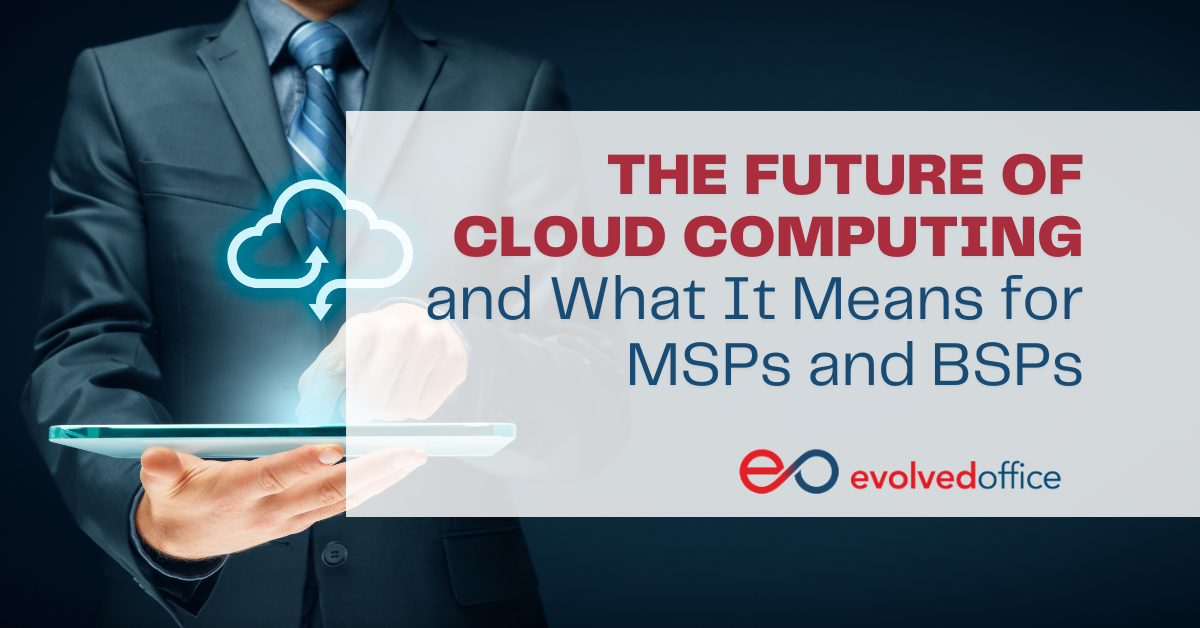The rise of cloud computing has revolutionized the way businesses handle data, communication, and collaboration. With the continued growth of cloud computing technology, Managed Service Providers (MSPs) and Business Service Partners (BSPs) are at the forefront of transforming how organizations use the cloud. This blog post will explore what the future holds for cloud computing as well as potential implications for MSPs and BSPs.
Benefits of Cloud Computing
Cloud computing offers a number of benefits compared to traditional on-premise systems. With cloud computing, businesses can save money on hardware investments as hosting is provided by third-party providers such as Amazon Web Services (AWS). Furthermore, businesses can access resources from any location with an internet connection meaning employees can be more productive in their work environment. Secure data storage remains a priority, too, particularly when using high-level encryption services like those offered by Google Cloud Platform (GCP). Along with this, companies benefit from scalability, which enables them to quickly adjust resources according to changing customer needs without investing in additional hardware or infrastructure.
Impacts on MSPs and BSPs
The wide range of advantages mentioned above means that MSPs and BSPs have been increasingly adapting to take advantage of the cost reductions that come with migrating to the cloud. For example, MSP/BSP companies can move applications off physical servers or into virtual environments, thereby creating opportunities for reducing costs associated with maintenance, setup time for new projects, storage space, etc. Moreover, it also enables MSP/BSP organizations to deliver services more quickly due to automated processes triggered within a few clicks from any location worldwide.
In addition, cloud technology provides more control over services remotely, which vice versa results in improved customer service delivery quality at reduced costs compared to on-premise solutions. Notably, customers now expect personalized experiences due to enhanced technologies such as machine learning and AI, thus driving demand for reliable service providers capable of delivering personalized service experiences across multiple channels based on preference — something that is possible through leveraging cloud technology.
What does The Future Hold For Cloud Computing?
Over the years, we’ve seen massive growth in demand for cloud technologies thanks to their flexibility, allowing companies ease of access control whilst maintaining secure data storage standards as required by industry regulations like HIPAA or GDPR compliance standards worldwide.
As we look towards the future, it is evident that adoption will continue growing rapidly, driven by flexible subscription models along with AI advancements resulting in more efficient resource provisioning capabilities enabling companies to reach scale faster than ever before, expediting digital transformation strategies globally, unlike never before seen before — driving competitive advantages value propositions exceeding traditional offerings present hitherto date — a key point setting out differentiating factors between market incumbents further heightening trend towards technology led innovation paving way further organizational success stories driven exponential growth rates anticipated heretofore only dreamed about prior eras technological stagnation prior big tech era dawning larger audiences community engagement transcending geographic boundaries much higher speed than achievable early days existence internet itself.
Thus heralding new world opportunities one unimagined practically merely a decade ago, reflecting ongoing shifts in consumer behavior preferences accompanying fast-paced continuous disruptive change normalcy previously all unimaginable mere yesterday today becoming reality tomorrow leaving lasting legacy generations come serve current present-day ones here today learn to grow become innovators themselves shape daily form lives follow generations passed leave permanent mark life earth yet keep forging ahead!
The growth of cloud computing technology has undoubtedly transformed the way businesses handle data and communication. As AI advancements continue to drive more efficient resource provisioning capabilities, the future of cloud computing seems brighter than ever before. The adoption of cloud technologies will continue to grow rapidly, driven by flexible subscription models, increased use of machine learning and AI, and higher demand for personalized service experiences. MSPs and BSPs are at the forefront of this transformation, creating new opportunities for reducing costs associated with maintenance, setup time, storage space, and more. As more businesses adapt to the cloud, we can expect to see new world opportunities emerge, transcending geographic boundaries and driving exponential growth rates previously unimaginable. The future of cloud computing is full of potential, and it’s essential for businesses to adapt to stay ahead of the curve.


